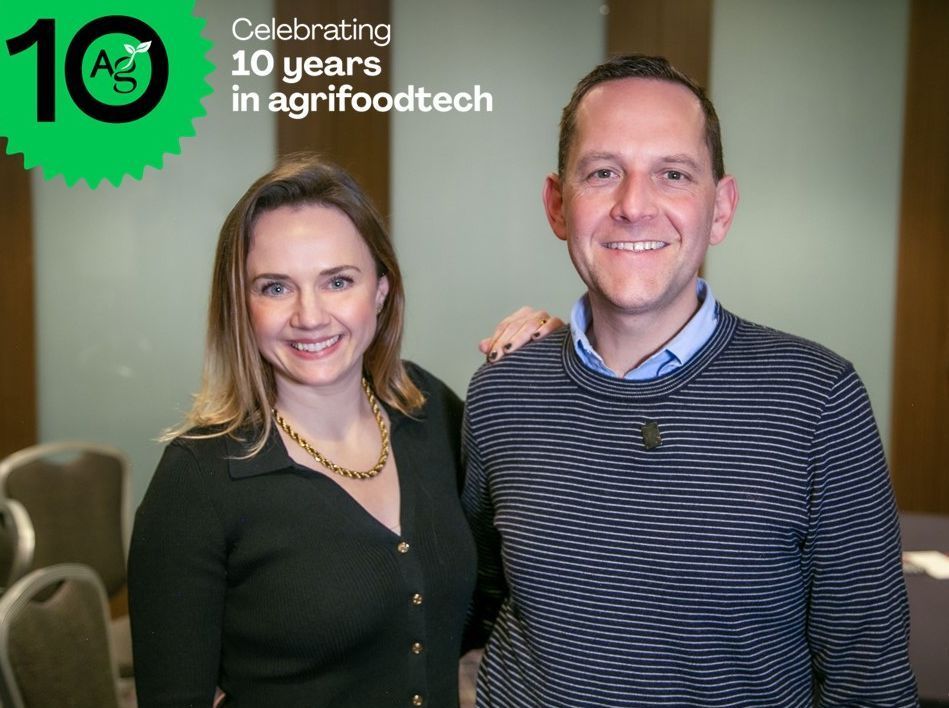Ten years ago today, Monsanto announced that it was purchasing the Climate Corporation, a company using “machine learning to predict the weather and other essential elements for agribusiness,” for $1 billion.
I started reporting on the agriculture industry just after this deal happened and remember the excitement that continued for months if not years in its wake. It was also argued that it played a role in driving Bayer’s subsequent acquisition of Monsanto for $63 billion in 2018.
In fact, you could argue that much of the excitement for the agrifoodtech industry at large is down to this deal that put a spotlight on the opportunity — and potential — for agtech to make entrepreneurs and investors money. Investment in agtech increased exponentially in the years after and soon the industry was raising tens of billions of dollars a year (albeit with a dip here and there!)
But how did it come about? How did founder and CEO David Friedberg reach that valuation, which has proven pretty much elusive to our industry ever since? How has our industry changed in its aftermath? And what’s coming next for agrifoodtech?
It’s been quite a journey for David Friedberg since this game-changing deal and he’s now better known for being a “bestie” on the All-In Podcast alongside a few of his heavyweight venture capital friends. He is also running his own investment company, The Production Board, which is likely to be looking for exits of its own soon.
As part of a series of articles, videos, and features to mark this big anniversary, and that of AgFunder’s, which is coming up later this year, I sat down with David Friedberg to look back at the deal that changed the course of agriculture and food technology and look forward at what’s to come next.
(Stay tuned to AgFunderNews in the coming months for more analysis of this deal and the subsequent Monsanto takeover by Bayer, which has been less than successful.)
A few snippets from my interview with David Friedberg:
AgFunderNews: Was it an easy sell to Monsanto?
David Friedberg (DF): So when were first contacted by Monsanto, I knew nothing about Monsanto; I thought they were just this evil company in St. Louis that did terrible things to the world and to people. [But then later] I’m like, “oh my gosh, these guys reached so many farmers. They could be a great distribution channel for us.” So I started reading about Monsanto online and not a lot of good stuff was being said about Monsanto online, but I really started to understand the business a little bit better. And several of them came in and we kind of talked about what we do, and I think it really fit a need that they were acknowledging themselves in the market.
“I thought they were just this evil company in St. Louis that did terrible things to the world and to people” – — David Friedberg, founder of Climate Corporation
Monsanto at that point had spent quite a bit of money on a service called Field Script where they were trying to do prescriptions, seed prescriptions for farmers as a service. They used a lot of different third parties, and it wasn’t very sophisticated; it wasn’t working very well. The business was fairly challenged, and I found out after the fact that there had been all this money and effort that had gone into this program. And so they said, look, maybe we could work on this together.
That sort of kicked off our conversations about maybe we could be an investor too and put some capital in. And then we said, well, if you’re going to do that, we’re really big into gathering data and using all this data to make our models better, “can you guys share all of your field trial data?” No one has more field trial data than Monsanto. All the hybrids that they’ve produced, all the seeds that they’ve produced, they know what the yields were, what fields those yields occurred at, what the dates were, we could match that with the weather and we could start to build better models using their dataset. And they came back and said, “well, if we’re going to give you that data, we need to own the whole company.”
LBT: Where is the food tech and ag tech industry 10 years from now?
DF: It really is astounding what we can do today that we literally couldn’t do 10 years ago. Because remember, the other big thing that happened 10 years ago that we don’t talk about that was far more important and consequential to the world than the Climate Corp acquisition by Monsanto was the realization of the potential of Crispr Cass nine and bringing that to market.
“It really is astounding what we can do today that we literally couldn’t do 10 years ago” — David Friedberg, founder of Climate Corporation
And since then, hundreds of other gene editing tools have come to market, many of which are open-sourced or royalty-free and available to license. The cost of sequencing has declined the ability in high throughput microfluidics, which allows the scale-up of experimentation by several orders of magnitude. There’s an extraordinary, and obviously digitization continues to ramp up. In the seven years we ran Climate Corp, by the way, we did a study that our average data use per year increased by 40 X every year for seven years. So I think we’ve seen that continue to be the case for the last 10 years. Maybe not to that extent, but certainly some many orders of magnitude increment and data.
So I could pick any one of those and I could tell you some extraordinary track for what’s going to happen over the next 10 years. But the truth is, I don’t know, because all of these tracks are intersecting with one another. And so we’re seeing these big transformations happen that folks aren’t kind of recognizing. So look, I think it’s still, and it always has been early days, right?
Agriculture was humankind’s first technology. We figured out that we could engineer the earth to make stuff for us. We put seed in the ground and oh my gosh, a plant came out and I could eat it. That was an incredible breakthrough for humankind.”
LBT: What keeps you up at night?
DF: I mean, right now I think the big challenge all entrepreneurs and investors are facing is these kinds of gaps in capital that may keep certain projects that have a good technology shot from actually getting across to the other side of the chasm, right? So if you look at public biotech companies, about 45% of them are trading below cash. Now, what that is telling you is that most biotech companies, when they hit a successful outcome on a clinical trial or when they’re close to, they go out and they raise more money to keep funding the clinical trials and hopefully get the product across the finish line. That’s a good example of what’s needed in a lot of ag tech that’s going on right now in precision fermentation and cellular meat. And some of these emerging categories we’ve been talking about is you need capital that as these businesses hit key technical milestones, they’re able to get funded to get to the next technical milestone and get across the chasm. They’re not profitable businesses on day one because they’re big technology builds. And so in a market environment like this where capital is saying, “I would rather invest in things that are going to pay me 5% a year this year or next year versus making five times my money 10 years from now,” you’re seeing all the money move to the near term. And that’s because of the way interest rates have been adjusted associated with problems with inflation, and other macroeconomic conditions.
“Right now, there’s a real capital problem…And so many investors have been trained in the last 15 years to be momentum investors” – David Friedberg, founder of Climate Corporation
So right now, there’s a real capital problem. These big projects that historically have been fundable are becoming less fundable, and as they become less fundable, the seed investors don’t want to invest in ’em because they’re afraid the A investors aren’t going to be there, who are afraid the B investors won’t be there, and no one wants to come and pick up the scraps of the company that’s now getting priced in a down round.
And that’s the other problem. So many investors have been trained in the last 15 years to be momentum investors. You invest in stuff when it’s going up. You don’t invest in stuff when it’s going down. In the last year, the index for growth stocks have declined by 70 to 80%. So everything is down 80%. So all private companies should be down 80%. So if you raised money at an A or a B valuation of a hundred, are you now worth 20? And if you’re worth 20 and you’ve raised 40 million in cash, you’re now worth less than your preference stack. And that’s the wall that everyone’s starting to hit because the investors that would do late-stage investing are really nervous to fund a company that’s now worth less than their preference stack. And you’ve got to go negotiate with the existing investors and recap and restructure.
It doesn’t mean the companies are valueless; it doesn’t mean that there isn’t something good there. It just means that the value now with all public companies, public biotech and growth stocks is worth less than the cash that’s gone in. And so there’s a real kind of reset that’s happening right now.





